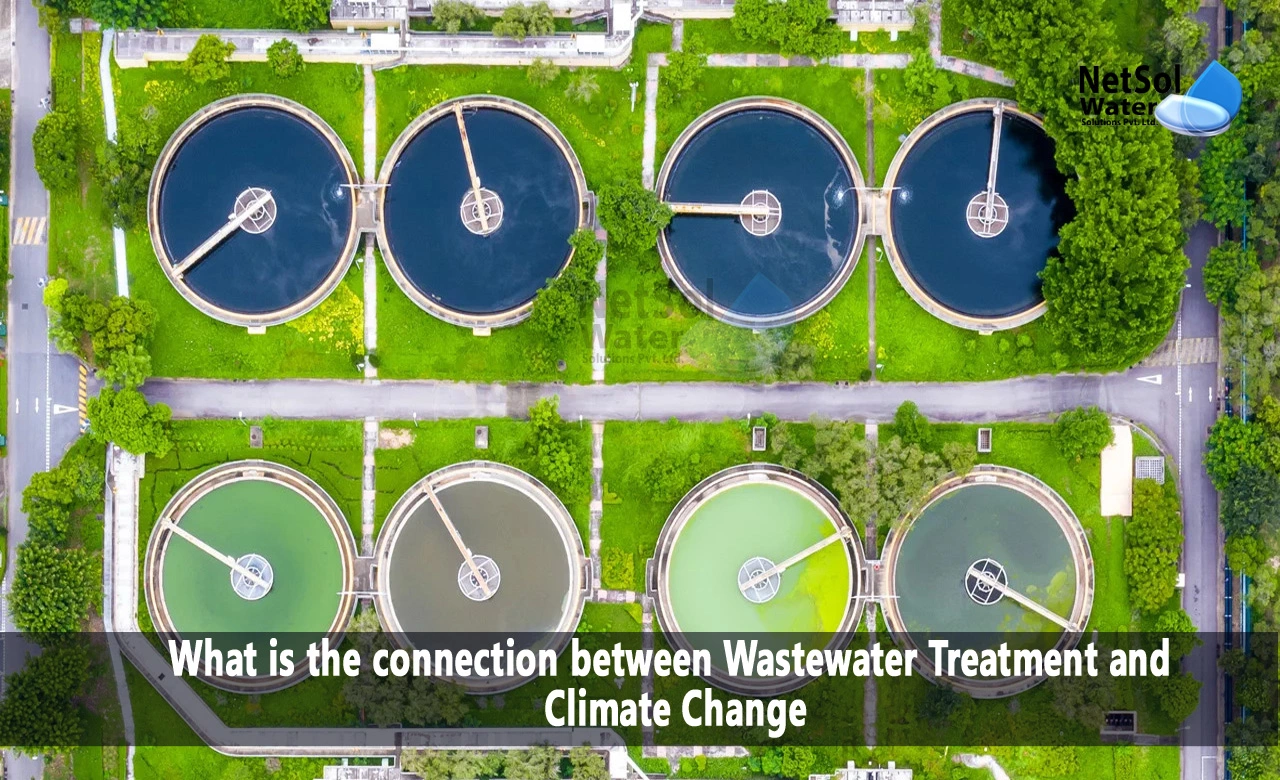A connection between wastewater treatment and climate change
Climate change is a global disaster that calls for innovative answers from every sector of society. Surprisingly, wastewater treatment, frequently considered a separate environmental challenge, performs a sizable position in the fight against weather exchange. This blog explores the connection between wastewater remedy and weather alternate, losing sight at the symbiotic relationship among those two critical troubles.
Wastewater Treatment's Carbon Footprint
Wastewater remedy plants are vital for protecting public health and the environment. They dispose of pollution and contaminants from home, business, and agricultural wastewater, ensuring that the water released back into the environment is safe. However, these treatment centres have a carbon footprint contributing to climate exchange.
1. Energy Consumption: Wastewater remedy vegetation requires a full-size quantity of power to energy various procedures, which include aeration, pumping, and filtration. The force used in these centres is frequently derived from fossil fuels, which release greenhouse gases (GHGs) into the environment.
2. Methane Emissions: In anaerobic remedy tactics, which include sludge digestion, methane gas is produced. Methane is an effective GHG, often more potent at trapping warmth than carbon dioxide (CO2).
3. Chemical Use: Some treatment methods contain the use of chemical compounds, inclusive of chlorine, which have a carbon footprint related to their production and transportation.
Mitigating Climate Change Through Wastewater Treatment
While wastewater remedy contributes to weather alternates, it can additionally mitigate its effects. Here's how:
1. Energy Efficiency: Many wastewater remedy plants are transitioning to more power-efficient strategies and technology. Renewable strength resources like sun and wind electricity are being harnessed to reduce the carbon footprint of these centres. Improved power performance not only lowers operational fees but also reduces GHG emissions.
2. Methane Recovery: Instead of liberating methane into the environment, some treatment plants are taking pictures and the usage of it as a source of renewable energy. This reduces methane emissions and similarly decreases the power's carbon footprint.
3. Biosolids as a Resource: The stable by products of wastewater remedy, referred to as biosolids, can be repurposed as fertilisers or transformed into biogas, which can be used as an opportunity for fossil fuels.
4. Nutrient Removal: Wastewater treatment can also remove excess vitamins like nitrogen and phosphorus from wastewater, stopping their release into water our bodies. This facilitates the fight of nutrient pollutants that could contribute to weather change via the discharge of nitrous oxide, some other potent GHG.
5. Water Recycling: Some handled wastewater may be reclaimed and reused for non-potable functions, reducing the call for freshwater resources and the power needed to deliver and deal with drinking water.
Global Impact
The connection between wastewater treatment and climate alternate is not just a local challenge; it has worldwide importance. As the world's population grows, so does the extent of wastewater generated. Inefficient treatment plants can become essential sources of GHG emissions. By addressing those issues on a worldwide scale, we will reduce the carbon footprint of wastewater treatment and contribute to the fight against climate exchange.
Conclusion
Wastewater remedy and climate change are inextricably linked. While wastewater treatment contributes to climate exchange because of its energy consumption, methane emissions, and chemical use, it additionally gives possibilities to mitigate its outcomes. By adopting sustainable and innovative practices, strength efficiency, methane recovery, and nutrient removal, wastewater remedy centres can lessen their carbon footprint and assist in fighting climate trade. The symbiotic relationship between wastewater treatment and weather change underscores the significance of including environmental strategies in our efforts to construct an extra-sustainable destiny.
Netsol Water is Greater Noida-based leading water & wastewater treatment plant manufacturer. We are industry's most demanding company based on client review and work quality. We are known as best commercial RO plant manufacturers, industrial RO plant manufacturer, sewage treatment plant manufacturer, Water Softener Plant Manufacturers and effluent treatment plant manufacturers. Apart from this 24x7 customer support is our USP. Call on +91-9650608473, or write us at enquiry@netsolwater.com for any support, inquiry or product-purchase related query.



